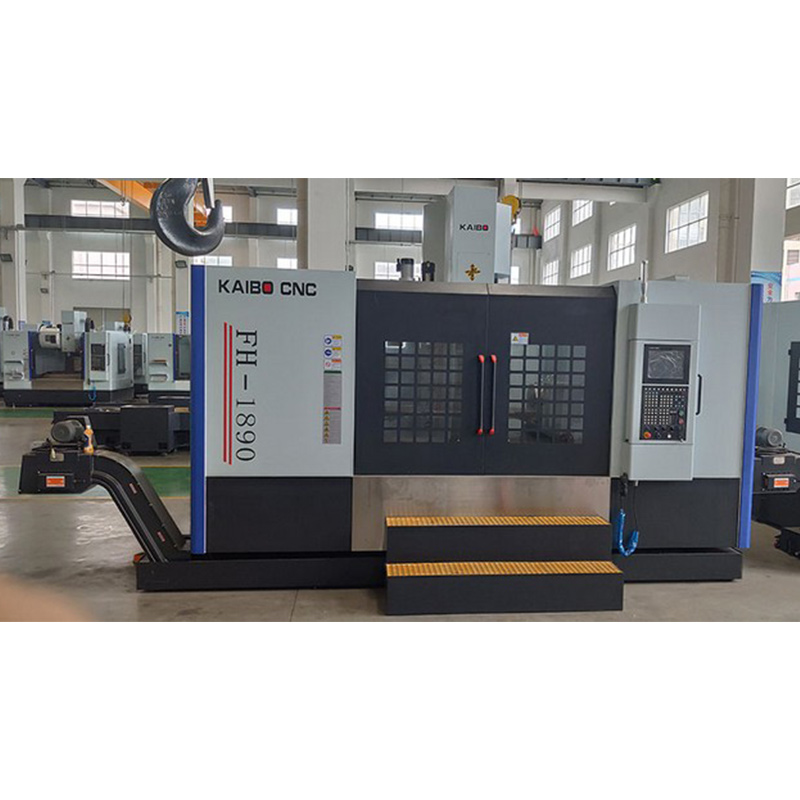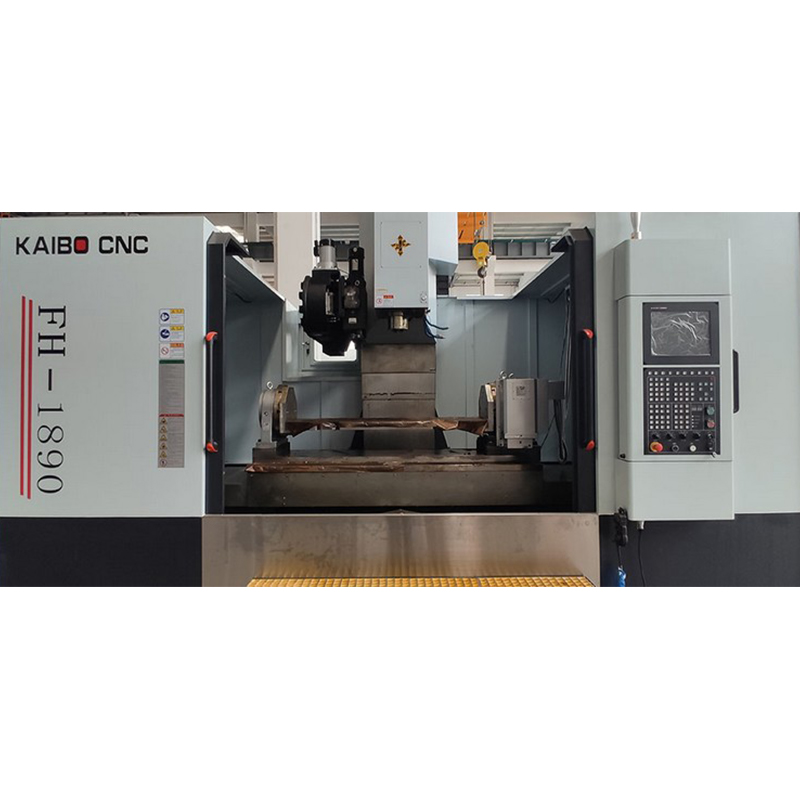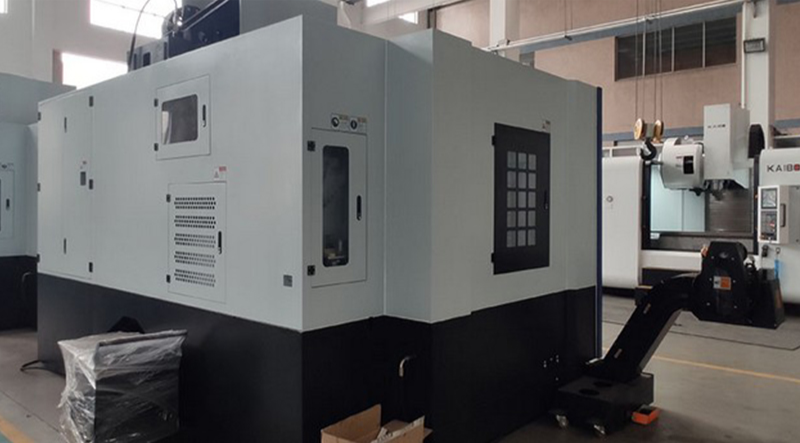
The FH1890L Heavy-Duty Vertical Machining Center, developed by Ningbo Kaibo CNC Machinery Co., Ltd., is redefining industry standards with its state-of-the-art power spindle system. Designed to address the rigorous demands of modern manufacturing, this machine integrates advanced technologies and robust mechanical design to deliver exceptional machining precision, stability, and operational efficiency.
Central to the FH1890L’s outstanding performance is its high-torque power spindle system engineered for heavy-duty operations. The spindle supports a continuous output power of up to 45 kW with a maximum speed of 6,000 RPM, allowing it to handle complex and large workpieces with remarkable ease. Its dynamically balanced rotor reduces vibrations by over 35% compared to conventional systems, safeguarding surface finish quality and extending component life.
Precision ceramic hybrid bearings in the spindle provide consistent radial and axial rigidity, crucial for maintaining machining accuracy within a tolerance as tight as ±0.005 mm during prolonged cycles. The integrated liquid cooling system ensures thermal stability, preventing thermal displacement even under high-load continuous operations.
At the digital core, the FH1890L employs Mitsubishi’s cutting-edge CNC controller, renowned for its intelligent interpolation algorithms and adaptive feedrate management. This controller optimizes tool paths in real time, minimizing chatter and enhancing the surface finish. With real-time vibration monitoring and error compensation functionality, the system maintains positional accuracy within ±0.002 mm, ensuring superior repeatability.
The controller’s user interface is designed for intuitive navigation, reducing operator setup time by up to 20% based on onsite evaluations. Moreover, it supports Industry 4.0 protocols, allowing seamless integration into smart factory environments for predictive maintenance and performance analytics.
To complement its power spindle, the FH1890L features a heavy-duty cast iron frame with ribbed reinforcement, delivering extraordinary rigidity and vibration damping. Finite element analysis during development confirmed a natural frequency above 150 Hz, significantly isolated from environmental vibrations.
This robust design minimizes deflection under maximum cutting forces exceeding 2,500 Nm, which translates to uncompromised dimensional accuracy on intricate components and longer tool life by reducing mechanical stress.

The FH1890L accommodates a variety of optional modules to enhance versatility and precision. The spindle extension rod is engineered for deep cavity machining, extending reach up to 300 mm without notable compromise in spindle stiffness or runout tolerance (<0.01 mm). This facilitates complex part features previously challenging in heavy-duty machining.
Integrated probing systems enable in-situ measurement and tool setting, reducing setup time by nearly 30% and sharpening dimensional control during batch production. These probes are fully compatible with the Mitsubishi controller’s adaptive correction algorithms, ensuring seamless data flow and closed-loop process control.

Ensuring sustained, high-performance operation of the FH1890L demands a proactive maintenance regimen. Key recommendations include:
| Maintenance Aspect | Recommended Frequency | Key Actions |
|---|---|---|
| Spindle Bearing Lubrication | Every 500 operation hours | Replace lubricant and inspect for wear or overheating signs |
| Controller Firmware Update | Quarterly | Upgrade software to latest version for enhanced stability |
| Structural Integrity Check | Annual | Inspect and tighten frame bolts, check for micro-cracks |
| Probes & Extension Rod Calibration | Monthly | Conduct precision calibrations to ensure measurement accuracy |
Additionally, operators are advised to regularly clean coolant filters and verify spindle temperature readings to avert unscheduled downtime.

Ningbo Kaibo CNC Machinery Co., Ltd. leverages decades of heavy machine tool expertise to craft solutions like the FH1890L, combining innovation with customer-centric reliability. This approach empowers manufacturing professionals to uphold stringent quality standards and maximize productivity.
Discover How the FH1890L Elevates Your Machining Capabilities Today

